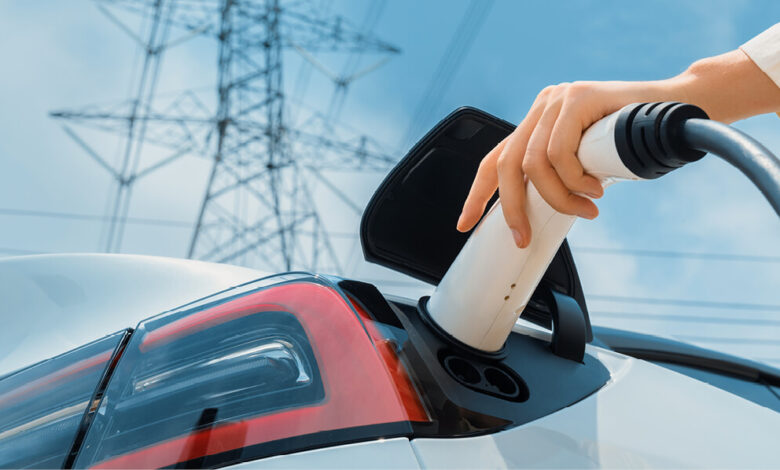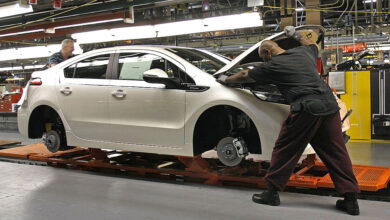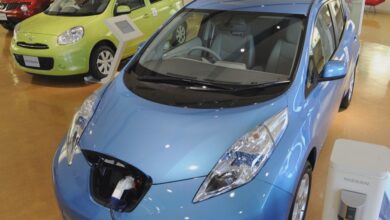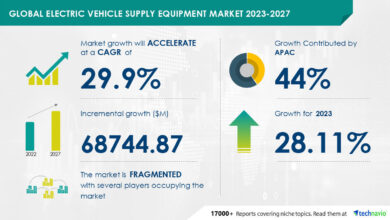The Future of EV Charging: Spotlight on the UAE and Saudi Arabia

“Both the UAE and KSA have EV-specific regulations to facilitate the development of EV infrastructure and use.”
Distribution and retail service providers must apply the approved tariff for supplying EV charging stations and equipment according to the consumption category of the connected facility in accordance with the provisions of the Electricity Service Provision Manual. EV charging services tariffs are, however, not subject to regulation and determined by the market, subject to the applicable competition laws. Nonetheless, WERA may set an upper tariff limit for such services.
Under the EV Regulation, an EV is defined as “any vehicle powered by one or more electric motors or one or more traction motors to propel the vehicle, where the motor derives electric current from a rechargeable storage battery or other portable energy storage device (rechargeable, or using energy derived from a source outside the vehicle), that is manufactured primarily for use in streets, public roads or highways.”
Furthermore, the MOMRAH Technical Requirements (the “Technical Requirements”), set out the requirements for charging EVs. Among other things, EVSE operators must obtain approval from local electricity distributors. The Technical Requirements cover the installation of equipment, dimensions, location, spatial organisation, signage and architectural requirements. 5% of all available parking spaces specified in the Technical Requirements must be include EV charging services. Under the Technical Requirements, an EV is defined as a vehicle that “uses electricity in its engine to produce energy, propel the vehicle to movement, and store energy in the vehicles battery”. Non-plug-in hybrid EVs are expressly excluded.
The Distribution Code specifies the technical aspects of the relationship between service providers and users of the distribution system. If the EV charging stations or equipment are not connected to the distribution network, owners and operators are not required to comply with the Distribution Code.
Finally, the KSA Standards, Metrology and Quality Organisation SASO: Technical Regulations for Electric Vehicles (Regulation No. 170) set out the standards applicable to EVs.
Challenges and opportunities
The EV sector is growing at a rapid pace in the UAE and KSA, with both countries having ambitious targets and policies in place, backed up by EV-specific regulations. This rapid evolution is demonstrated by their rising GEMRIX rankings. KSA has also committed to manufacturing EVs in-country, although to reach its full potential, it will require technology transfer, availability of skilled labour and supply chain development.
Both the UAE and KSA have EV-specific regulations to facilitate the development of EV infrastructure and use. However, despite ambitious targets and committed policies, regulations in both countries are relatively new and piecemeal, involving multiple layers and stakeholders, including infrastructure owners, energy providers, regulators, licensing authorities and customers. These stakeholders must comply with EV specific legislation as well as applicable licensing and approval requirements, technical regulations, standards and codes, and requirements related to environmental, health and safety standards. There are also challenges relating to battery disposal, which require compliance with environmental, health and safety standards, posing a challenge in establishing effective and sustainable waste management practices. Navigating these complex regulatory frameworks presents a challenge for compliance and the efficient installation and operation of EV infrastructure.
Nevertheless, there are opportunities in both markets. The growing interest and demand for EVs provides a considerable opportunity for the expansion of EV infrastructure, driven by a shift towards sustainable transportation. Significantly, government initiatives and partnerships in both the UAE and KSA are creating a conducive environment for investment and development of EV infrastructure.
Balancing the challenges and opportunities will be crucial for the UAE and KSA to establish robust and sustainable EV infrastructure, supporting their broader goals of economic diversification, environmental sustainability and clean energy adoption.
NOTICE The laws referenced in this chapter are English translations of the original Arabic language laws, refer to the laws as amended and as published and in the public domain as at the date of writing. Where there is a conflict between the English translation and the original Arabic language law, the Arabic language law prevails.
Sign up here to receive future updates in this series.
Click here to view the full article series.
footnotes
[1] Source: Arthur D Little (https://www.adlittle.com/sites/default/files/reports/ADL_Global_EM_readiness_index_2023_0.pdf).
[2] Source: GEMRIX 2023.



